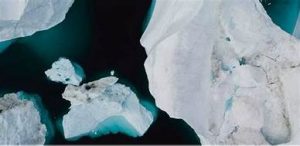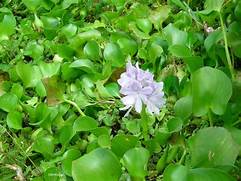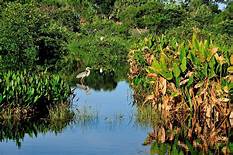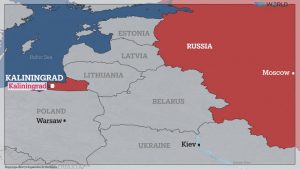Today Current Affairs:28th June 2022 for UPSC IAS exams, State PSC exams, SSC CGL, State SSC, RRB, Railways, Banking Exam & IBPS, etc
Table of Contents
Microplastics In Antarctica:

For the first time, microplastics have been found in freshly fallen snow in Antarctica
- Researchers collected snow samples from 19 sites in the Ross Island region of Antarctica and found that all contained microplastics.
- While microplastics have been found across the world, from the world’s deepest ocean floors to the peak of Mount Everest, researchers say that this is the first time that they have been found in freshly fallen snow in Antarctica.
- These particles, due to their light weight and low density, might have travelled through air from more than 6,000 km away.
- However, there is also a possibility that the human presence in Antarctica created a microplastic ‘footprint’
- It shows that the spread of microplastics is so widespread, that even the remotest and least habitable places in the world are now infested by these particles.
- Microplastics are not biodegradable and can be toxic for plants and animals.
- The microplastics deposited in ice and snow can accelerate the melting of the cryosphere — regions where water is in solid form, like the planet’s North and South Poles. Dark-coloured microplastics are better at absorbing sunlight and retain more heat.
- Microplastics are tiny plastic debris that are smaller than 5 mm in length, tinier than even a grain of rice. There are two types of microplastics.
- Primary microplastics are tiny particles that are purposely designed as such for commercial use, like in cosmetics, nurdles-plastic pellets used in industrial manufacturing and in fibres from synthetic textiles like nylon.
- Secondary microplastics are formed through the degradation of larger plastic items like bottles, fishing nets and plastic bags.
- This occurs through exposure to the environment, like radiation from the sun, wind and ocean waves.
14th BRICS Summit:

Prime Minister of India attended the 14th BRICS summit which was virtually hosted by China.
- Theme of the 14th BRICS Summit: Foster High-quality BRICS Partnership, Usher in a New Era for Global Development.
- BRICS Plus virtual conference was also held as part of the main meeting with ministers from countries, including the UAE, Saudi Arabia, Egypt, Kazakhstan, Indonesia, Argentina, Nigeria, Senegal, and Thailand.
Highlights of the Summit:
- It states that BRICS supports talks between Russia and Ukraine.
- The grouping is willing to support the United Nations’ and the International Committee of the Red Cross’s (ICRC) efforts to deliver humanitarian aid to Ukraine.
- Countries also expressed concerns about the situation in Taliban-held Afghanistan.
- Concerns over the humanitarian situation in and around Ukraine and expressed their support to efforts of the UN Secretary-General, UN Agencies and International Committee of the Red Cross (ICRC) to provide humanitarian assistance in accordance with the basic principles of humanity, neutrality and impartiality.
- While discussing terrorism and terror cooperation, the BRICS countries said that only the UN Security council has the authority for imposing sanctions.
- On Afghanistan, BRICS countries called for “Afghanistan authorities to achieve national reconciliation through dialogue and negotiation, and to establish a broad-based and inclusive and representative political structure”, adding that Afghan territory must not be used to shelter terrorists or attack any other country.
- The BRICS Initiative on Denial of Safe Haven to Corruption aims to further strengthen anti-corruption capacity building through education and training programs and enhance anti-corruption exchanges and cooperation within multilateral frameworks.
- The declaration welcomed the establishment of the Digital Economy Working Group by upgrading the E-commerce Working Group.
- And the BRICS nations have agreed to promote consumer protection in e-commerce by advancing the implementation of BRICS Framework for Consumer Protection in E-commerce.
- The summit also expressed concern over the serious drug situation in the world. BRICS declaration appreciate BRICS Anti-Drug Working Group’s active role in combating transnational drug trafficking and promoting global drug governance and will further strengthen drug control cooperation.
Water Hyacinth:

West Bengal has made an outstanding example by utilising Water Hyacinth, an obnoxious aquatic weed plant to develop small-scale cottage industry that is both financially rewarding as well as environmentally friendly in approach.
- Water hyacinth, scientifically known as Eichhornia crassipes Mart. (Pontederiaceae), is an aquatic weed common in waterbodies across South Asia, including India.
- This is not an indigenous species but was introduced to India during the British colonial rule as an ornamental aquatic plant from South America.
- The plant produces beautiful purple flowers that have high aesthetic value.
- This simple, floating aquatic plant, unfortunately, is also an obnoxious weed that has been suffocating surface freshwater sources like rivers, rivulets, streams, ponds, dams, lakes and bogs, making the waterbodies unsuitable for commercial fishery, transportation and recreation.
- The plant is a prolific vegetable matter-producer and has the ability to choke out any closed waterbody at an astonishing rate.
- A plant that is prolific produces a large number of young plants, or fruit.
- This cuts off sunlight as well as reduces oxygen level in the water, making it unfit for commercial use.
- It is an expensive and labour-intensive process to remove this weed from time to time.
- This water hyacinth has become a serious problem plant for the ecosystem.
Rajasthan’s New Wetland:

Recognised as the “bird village” following community-driven conservation efforts, Menar in Udaipur district is set to be notified as Rajasthan’s new wetland.
- This will pave the way for getting the Ramsar site status for this rural heartland of the Mewar region.
Menar Wetland:
- The two lakes in the Menar village – the Brahma and Dhandh play host to a large number of migratory birds every year.
- The Forest Department has initiated the process for notification of Menar as a wetland, which will recognise its role in the storage of sediment and nutrients and enable the local authorities to maintain the respective lakes.
- With the status of wetlands, the two lakes will be strengthened for increasing the vegetation of aquatic plants and protecting biodiversity.
- More than 150 species of local and migratory birds inhabit the two lakes in the winter season.
- They include Greater Flamingo, White-tailed Lapwing, Pelican, Marsh Harrier, Bar-headed Goose, Common Teal, Greenshank, Pintail, Wagtail, Green Sandpiper and Red-wattled Lapwing.
- Bird lovers and tourists flock to the village after the arrival of migratory birds from as far as Central Asia, Europe and Mongolia.
- At present, Rajasthan has two wetlands recognised as Ramsar sites –
- Keoladeo Ghana in Bharatpur district
- Sambhar Salt Lake in Jaipur district.
44th Chess Olympiad : New Delhi

The Prime Minister Narendra Modi launched the historic torch relay for the 44th Chess Olympiad at Indira Gandhi Stadium, New Delhi.
- This torch will be taken to 75 cities in a span of 40 days before the final culmination at Mahabalipuram near Chennai.
- It will then head over to the FIDE Headquarters, Switzerland.
- India is hosting the prestigious Chess Olympiad for the first time and in the process, Asia gets to host the event after a gap of 30 years. Philippines last hosted it from Asia in 1992.
- India, who made its debut at the event in 1956 Moscow (27th position), has a gold medal (joint winners with Russia in 2020) and two bronze medals (2021, 2014) from the Chess Olympiad.
- While the 2020 and 2021 editions were held virtually owing to the Covid 19 pandemic, the 2022 edition will be the first over-the-board Chess Olympiad being held since 2018 in Georgia.
Production-Linked Incentive (PLI) Scheme For Telecom:

The Department of Telecommunications (DoT) has extended the production-linked incentive (PLI) scheme for telecom by one year, and has amended the scheme to raise the incentive rate by an additional 1 per cent, aimed towards incentivising design-led manufacturing in the sector.
- The guidelines for the PLI Scheme for Telecom & Networking Products have been amended to introduce design-led manufacturing with additional incentive rates.
- The design-led manufacturing scheme is open for both medium and small-scale enterprises (MSMEs) and non-MSMEs, including domestic and global companies.
- The DoT also said applications for design-led manufacturing will be prioritised over other manufacturers.
- The scheme requires an investment threshold of Rs 10 crore for MSMEs and Rs 100 crore for non-MSMEs, excluding land and building cost.
- The Centre will provide additional incentives of over Rs 4,000 crore under the amended scheme.
- The incentives will be based on incremental sales of the manufactured goods, and range between 4 per cent to 7 per cent for different categories over the years.
- MSMEs will get an additional 1 per cent incentive in the first, second, and third years.
- The DoT has also approved 11 new telecom and network products to the existing list of products that can be manufactured under the scheme.
- Investment made by successful applicants in India from 1st April 2022 onwards and up to Financial Year 2025-2026 shall be eligible, subject to qualifying incremental annual thresholds.
Kaliningrad:

As the Russia-Ukraine conflict rages on, the spotlight is on Kaliningrad, Russia’s westernmost region.
- Russia has warned Lithuania of serious consequences after it banned the rail transfer of some goods to the Russian territory of Kaliningrad.
- Last week, the Lithuanian authorities announced they would ban goods subject to EU sanctions from passing through their territory to Russia.
- As Russia’s westernmost federal entity, the Kaliningrad Oblast occupies 15,000 sq km and houses under 1 million people.
- Russia is divided into 85 such oblasts, or states.
- It is situated almost 300-km away from mainland Russia, and shares no borders with it.
- Home to the deployment of Moscow’s Iskander missiles and the Russian Baltic Fleet, Kaliningrad has been called the Kremlin’s “unsinkable aircraft carrier”.
- The end of the Second World War marked an important milestone in Kaliningrad’s history.
- The Potsdam Agreement was signed by America, Britain and the former Soviet Union in 1945 in which Kaliningrad, then known as Königsberg, was ceded to Russia.
- This was done as the Soviet Union, under Stalin, had already taken control of the East Prussian territory due to its strategic geographic location.




